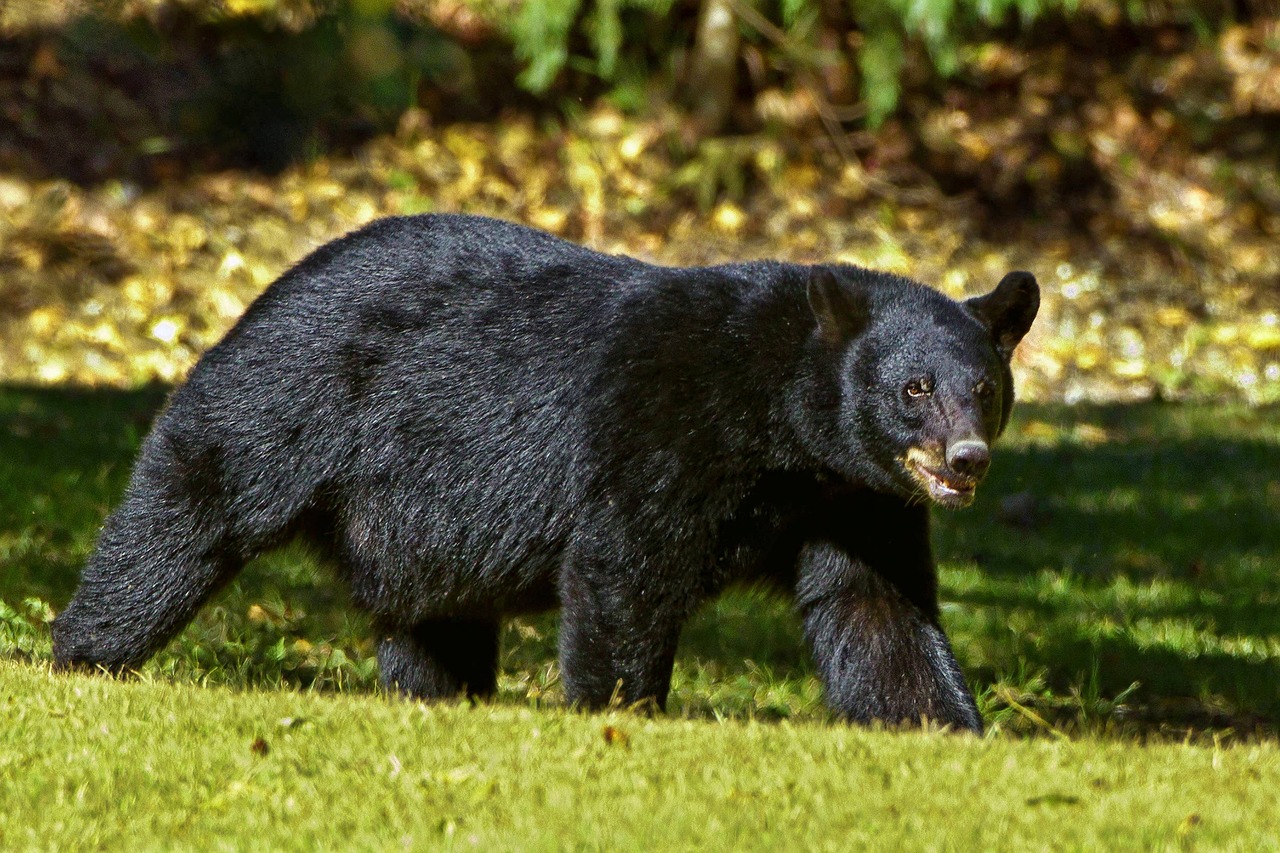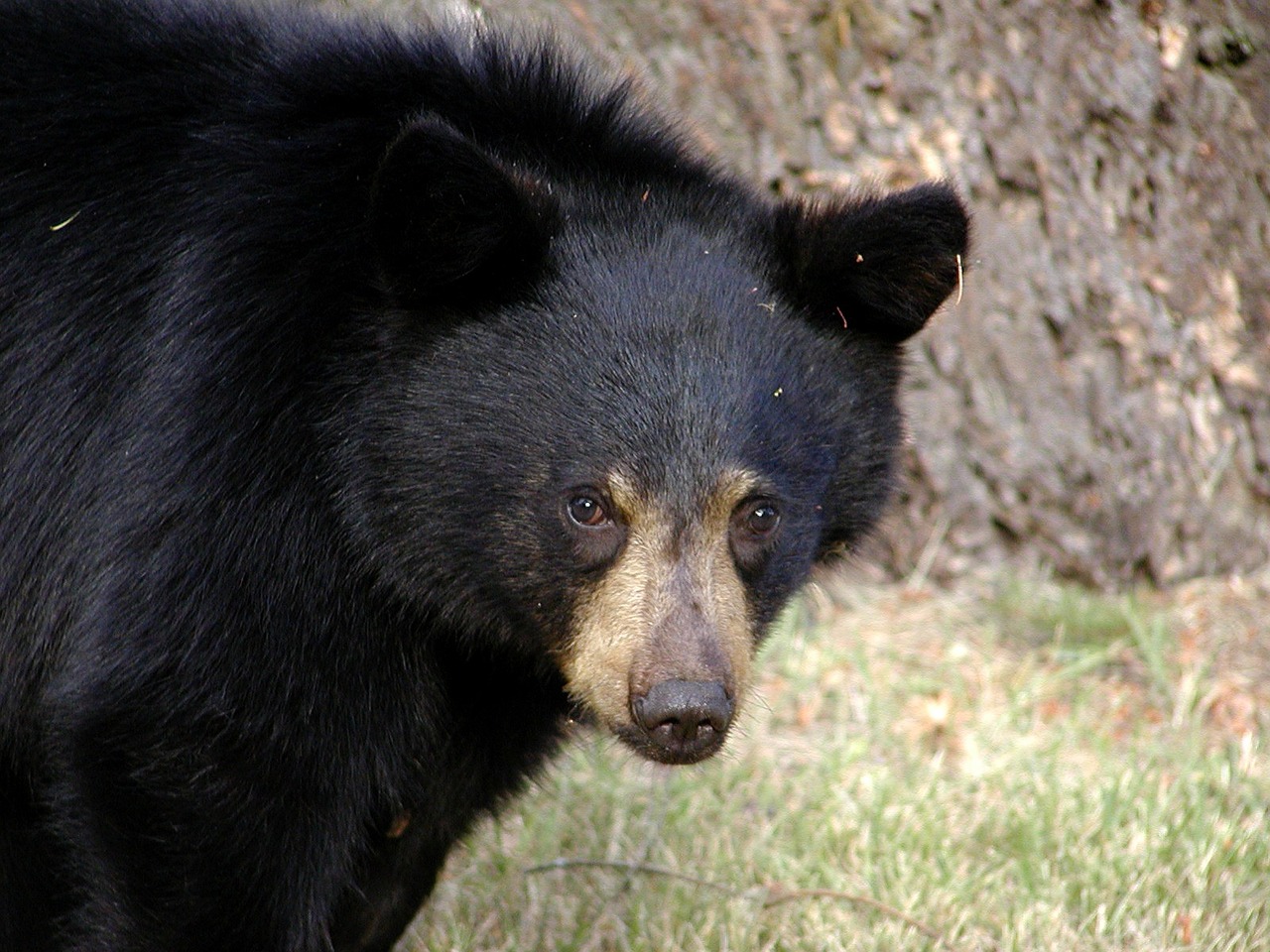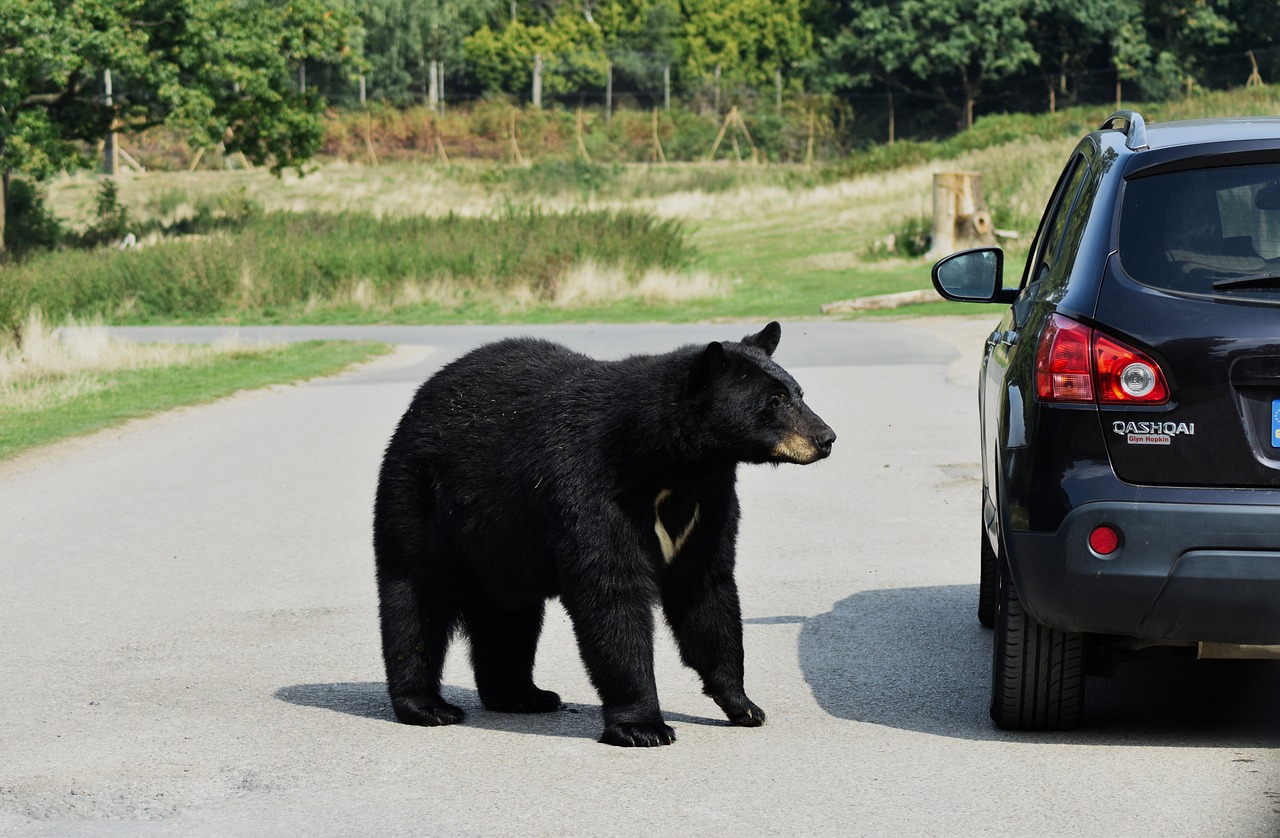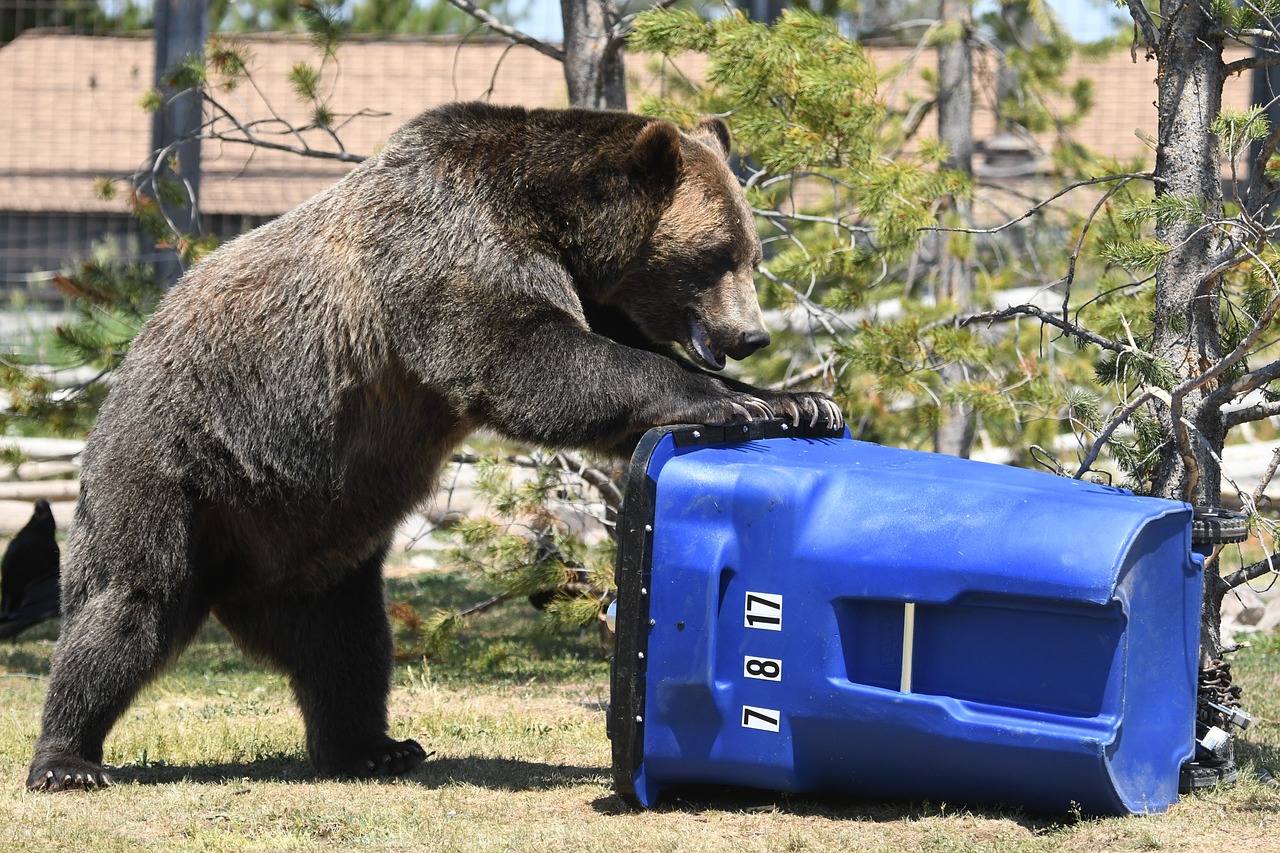Black bears are common in North America. They are attracted to human food, noise, and other wildlife. It has become common for them to appear in the Villages of Cambridge and Greenwich.
Black bears are simply unwanted visitors in many areas. They may be shy and elusive at first, but once they gain a taste for human food they can become aggressive and even deadly. That’s why it’s best to avoid trying to catch a black bear by surprise. Keep an eye out for any tell-tale signs before you encounter a black bear in your home or neighborhood.

An Irresistible Buffet: Food Sources In Neighborhoods
Black bears are opportunistic eaters and will take advantage of any available food source. Unfortunately, neighborhoods provide an irresistible buffet for these bears. From unsecured garbage cans to bird feeders, there are plenty of food sources that can attract black bears to your area.
One of the most common food sources for black bears in neighborhoods is unsecured garbage cans. Bears have an incredible sense of smell and can easily detect the scent of food from miles away. If you leave your garbage cans outside and unsecured, you are essentially inviting black bears to feast on your trash.

To avoid this, make sure to secure your garbage cans with tight-fitting lids and consider investing in bear-resistant containers.
Another food source that attracts black bears is bird feeders. Bird feeders are filled with high-calorie seeds that are not only attractive to birds but also to bears. If you live in an area with black bears, it's important to either bring your bird feeders inside at night or hang them high enough that bears cannot reach them. This will help prevent bears from becoming accustomed to the easy food source and potentially causing damage to your property.
Additionally, fruit trees and berry bushes can also attract black bears. If you have fruit trees or berry bushes in your yard, make sure to pick the fruit as soon as it ripens and clean up any fallen or rotting fruit. This will help minimize the scent of food and reduce the likelihood of bears being attracted to your property.

Bear-proofing Your Home and Yard
Living in an area with black bears requires taking steps to bear-proof your home and yard. While black bears are generally shy and will avoid human contact, they can become dangerous if they are attracted to food sources or feel threatened. Here are some tips to help bear-proof your home and yard:
1. Secure your garbage cans: As mentioned earlier, unsecured garbage cans are a major attractant for black bears. To prevent bears from getting into your trash, use bear-resistant containers or secure your garbage cans with bungee cords or other locking mechanisms. It's also important to clean your garbage cans regularly to remove any food odors.
2. Remove bird feeders: Bird feeders are another common attractant for black bears. If you live in an area with bears, it's best to remove bird feeders or bring them inside at night.

If you choose to keep bird feeders, make sure they are hung high enough that bears cannot reach them.
3. Store pet food indoors: If you have pets, it's important to store their food indoors, especially at night. Leaving pet food outside can attract bears and other wildlife to your yard.
4. Install electric fencing: If you have a garden or fruit trees that attract bears, consider installing electric fencing around these areas. Electric fencing can deter bears from entering your property and accessing food sources.
5. Keep grills clean: If you have a grill, make sure to clean it thoroughly after each use. The smell of food residue can attract bears to your yard.
6. Don't leave food outside: Whether you're camping or enjoying a picnic in your yard, it's important to clean up and properly store any food.

Leaving food outside can attract bears and create a dangerous situation.
By taking these precautions, you can help reduce the likelihood of black bears visiting your home and yard, and ensure the safety of both yourself and the bears.
What to Do If You Encounter a Black Bear
Encountering a black bear can be a terrifying experience, but it's important to remain calm and know what to do to avoid escalating the situation. Here are some steps to follow if you encounter a black bear:
1. Stay calm and make yourself known: If you see a black bear, don't run or scream. Instead, stand your ground and speak loudly and firmly. This will let the bear know that you are there and may deter it from approaching.
2. Back away slowly: Slowly back away from the bear while keeping an eye on it.

Avoid turning your back to the bear or making sudden movements, as this may provoke it.
3. Give the bear space: It's important to give the bear an escape route. If the bear feels cornered or threatened, it may become aggressive. Make sure to leave the bear a clear path to retreat.
4. Do not approach the bear: Under no circumstances should you approach a black bear. Bears are wild animals and should be treated with caution and respect.
5. Make yourself look bigger: If the bear continues to approach, try to make yourself look bigger by raising your arms and standing on your tiptoes. This may intimidate the bear and discourage it from coming closer.
6. Use noise or bear spray: If the bear continues to approach despite your efforts to deter it, use noise to scare it away.

Yell, clap your hands, or use an air horn if you have one. If the bear gets too close, you can use bear spray as a last resort. Bear spray is a type of pepper spray specifically designed to deter bears.
Remember, black bears are generally not aggressive towards humans and will typically avoid confrontation. By following these steps, you can help ensure both your safety and the well-being of the bear.
Bears and Pets: Keeping Everyone Safe
When it comes to bears and pets, it's important to take precautions to keep both your furry friends and the bears safe. Black bears are generally not a threat to humans or pets, but they can become defensive if they feel threatened or if their cubs are in danger. Here are some tips to keep everyone safe:

1. Keep your pets indoors: If you live in an area with black bears, it's best to keep your pets indoors, especially at night. This will help prevent any potential conflicts between bears and your pets.
2. Supervise your pets when outdoors: When your pets are outside, make sure to supervise them and keep them on a leash. This will help prevent them from encountering a bear or wandering into areas frequented by bears.
3. Secure pet food and water: Make sure to store pet food and water indoors, especially at night. Leaving pet food outside can attract bears to your yard.
4. Install motion-activated lights: Installing motion-activated lights in your yard can help deter bears from approaching. Bears are generally wary of well-lit areas.
5. Create a bear-resistant area: If you have a fenced yard, consider creating a bear-resistant area where you can safely let your pets out.

This area should be enclosed with electric fencing or other bear-proof barriers.
6. Know the signs of a bear encounter: Be aware of any signs that a bear may be in the area, such as tracks, scat, or overturned garbage cans. If you notice these signs, keep your pets indoors and take extra precautions.
By taking these measures, you can help ensure the safety of both your pets and the bears in your area.
What Not to Do Around Black Bears
When it comes to black bears, there are certain actions that should be avoided to prevent any potential conflicts or dangerous situations. Here are some things you should never do around black bears:
1. Do not feed the bears: Feeding bears, intentionally or unintentionally, can lead to dangerous situations. Bears that become accustomed to human food can lose their fear of humans and become aggressive in their search for food.

2. Do not approach or corner a bear: Bears should never be approached, especially if they have cubs. Approaching or cornering a bear can provoke it and lead to an aggressive response.
3. Do not run from a bear: Running from a bear can trigger its instinct to chase. Instead, back away slowly and calmly.
4. Do not climb a tree: Contrary to popular belief, black bears are excellent climbers. Climbing a tree to escape a bear may not be effective and can put you at further risk.
5. Do not play dead unless attacked: Playing dead is a defensive strategy used when a bear makes physical contact during an attack. If a black bear charges at you, stand your ground and use bear spray if you have it.
6. Do not leave food or garbage outside: Leaving food or garbage outside can attract bears to your property and create a dangerous situation.
Make sure to properly store and dispose of food and garbage.
Conclusion
Living with black bears in your neighborhood requires awareness, respect, and taking necessary precautions to prevent conflicts. By understanding the food sources that attract bears, bear-proofing your home and yard, knowing what to do if you encounter a bear, and keeping your pets safe, you can coexist with these magnificent creatures. Remember to always stay calm, give bears their space, and appreciate the beauty of wildlife from a safe distance. With the right knowledge and precautions, you can enjoy living in harmony with black bears.
 Add Row
Add Row  Add
Add 




Write A Comment